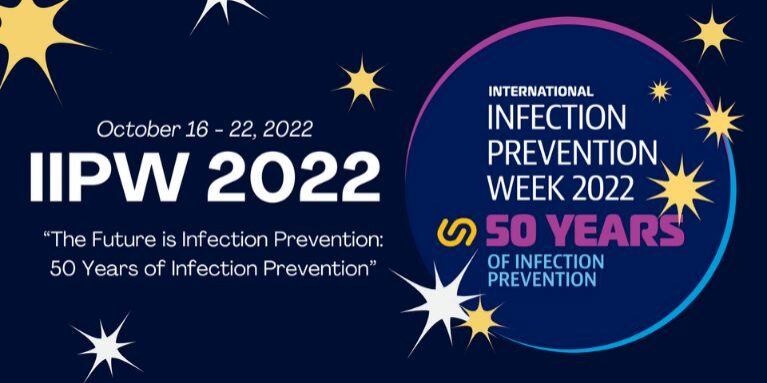
In honor of International Infection Prevention Week (IIPW), the National Foundation for Infectious Diseases (NFID) is again partnering with the Association for Professionals in Infection Control and Epidemiology (APIC) as a supporter. Held annually during the third week of October, IIPW aims to raise awareness about the role that infection prevention plays in improving patient safety.
Healthcare-associated infections (HAIs) are infections that people get while they are receiving care for another condition. Hospitals, surgery centers, nursing homes, and any other setting where you or your family receive healthcare should be safe and free from infection. Each of us—patients, families, and healthcare professionals—have an important role to play in preventing HAIs.
Follow these 6 tips to help you and your family avoid infections while receiving healthcare:
1. Speak Up
Always talk with healthcare professionals, ask questions, and discuss any concerns. Whenever a treatment is recommended, ask why it is necessary and what risks are associated with it. If you need a catheter (a device inserted into your body to drain fluid, such as urine), ask daily when it can be removed. Write down your questions before speaking to a healthcare professional, so that you do not forget anything.
2. Wash Your Hands (Often)
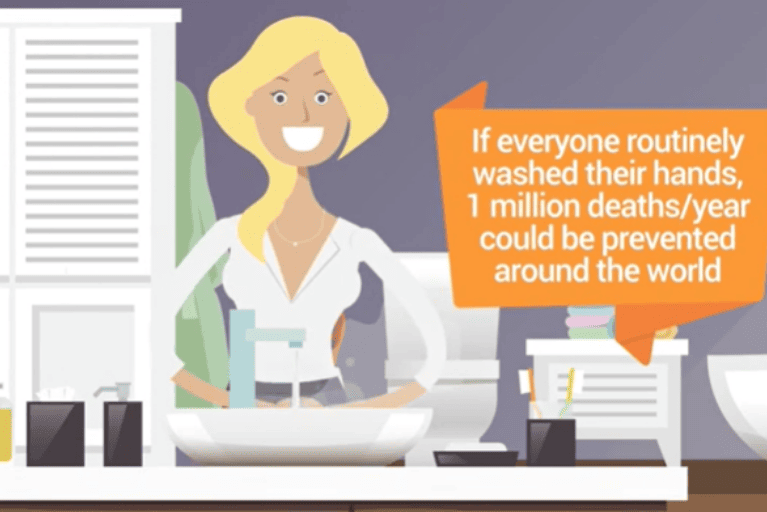 Hand hygiene is one of the best ways to prevent the spread of infection. Make sure that everyone around you, including healthcare professionals and visitors (if you are admitted to a healthcare facility), washes their hands. If you do not see a healthcare professional wash their hands, speak up. It is important that you are also diligent about washing your own hands when you are caring for yourself or others.
Hand hygiene is one of the best ways to prevent the spread of infection. Make sure that everyone around you, including healthcare professionals and visitors (if you are admitted to a healthcare facility), washes their hands. If you do not see a healthcare professional wash their hands, speak up. It is important that you are also diligent about washing your own hands when you are caring for yourself or others.
3. Get Smart About Antibiotics
Ask whether antibiotics are necessary and make sure to ask if it is the right antibiotic to treat your condition. Also, do not expect to receive antibiotics for every illness, as antibiotics can only treat bacterial infections. Diarrhea can accompany antibiotic usage, and it is important that you report frequent episodes of diarrhea to a healthcare professional.
4. Recognize Infections
Signs and symptoms of an infection may include redness, pain, or drainage at the incision site. Many times these symptoms are accompanied by fever. There may be other signs, depending on whether you had a catheter or other device inserted during treatment. Always contact a healthcare professional for additional guidance to ensure prompt and proper treatment.
5. Get Vaccinated
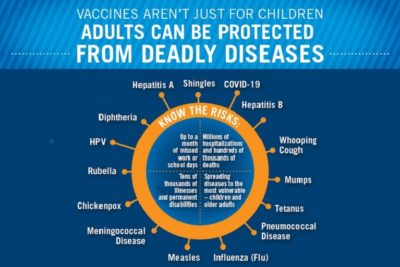 Remember to get an annual influenza (flu) vaccine and stay up to date on COVID-19 vaccinations, and all other recommended vaccines. Vaccines help prevent disease, minimize related complications, and save lives.
Remember to get an annual influenza (flu) vaccine and stay up to date on COVID-19 vaccinations, and all other recommended vaccines. Vaccines help prevent disease, minimize related complications, and save lives.
6. Stay Home When Sick
If you or a loved one is admitted to a healthcare facility, ask family and friends not to visit if they are not feeling well, to avoid making others sick. They should stay home until they have fully recovered from their illness.
Help Prevent Infections
- Share additional APIC resources to raise awareness about infection prevention
- Get an annual flu vaccine, and make sure you and your family are up to date on all recommended immunizations
- View/share these NFID videos (in English and Spanish), including this one in which NFID President Patricia A. Stinchfield, RN, MS, CPNP demonstrates the right (and wrong) way to wash your hands:
To join the conversation and get the latest news on infectious diseases, follow NFID (@NFIDvaccines) and APIC (@APIC) on Twitter using the hashtags #IIPW and #GetVaccinated, like NFID on Facebook, follow NFID on Instagram, visit NFID on LinkedIn, and subscribe to receive future NFID Updates.
Related Posts
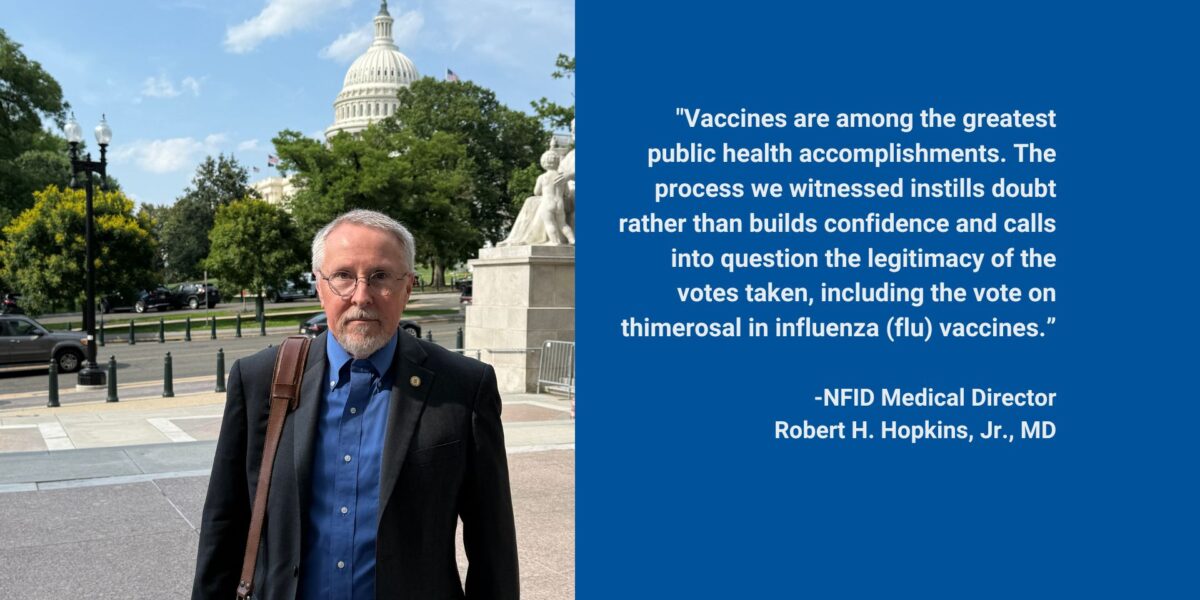
Flawed ACIP Process Leads to Confusion and Distrust
Public health experts and leading healthcare professionals share concerns regarding the June 2025 Advisory Committee on Immunization Practices (ACIP) meeting on US immunization policy …
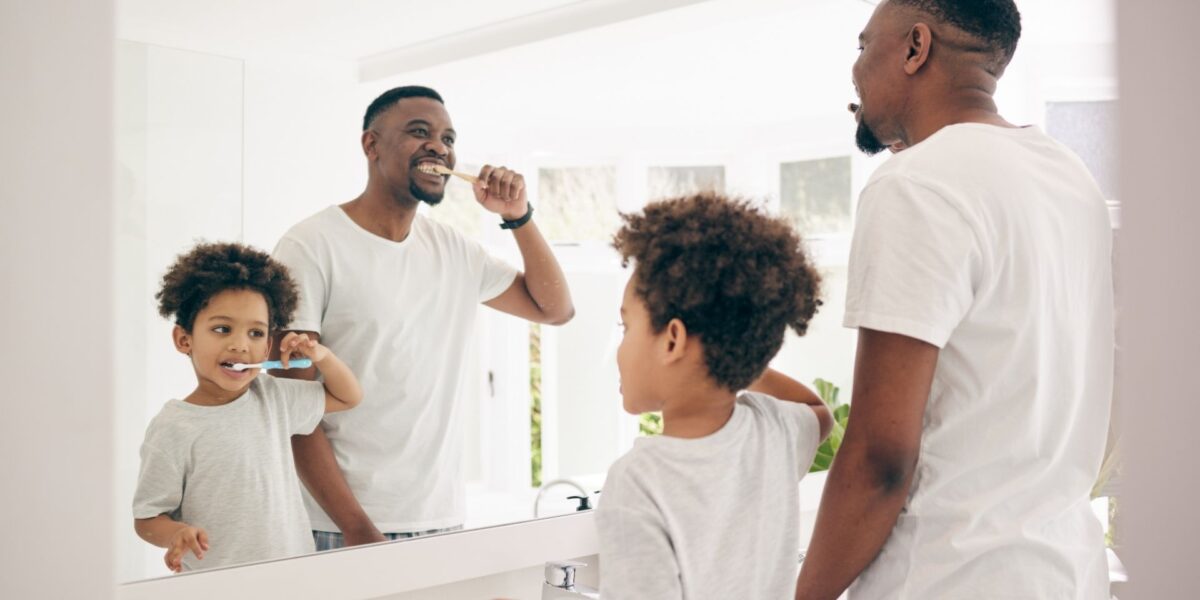
Empowering Men to Prioritize Health
Staying up to date on all recommended vaccines and taking other steps to prevent illness helps ensure men are ready for what matters most—showing up for loved ones or simply enjoying life …
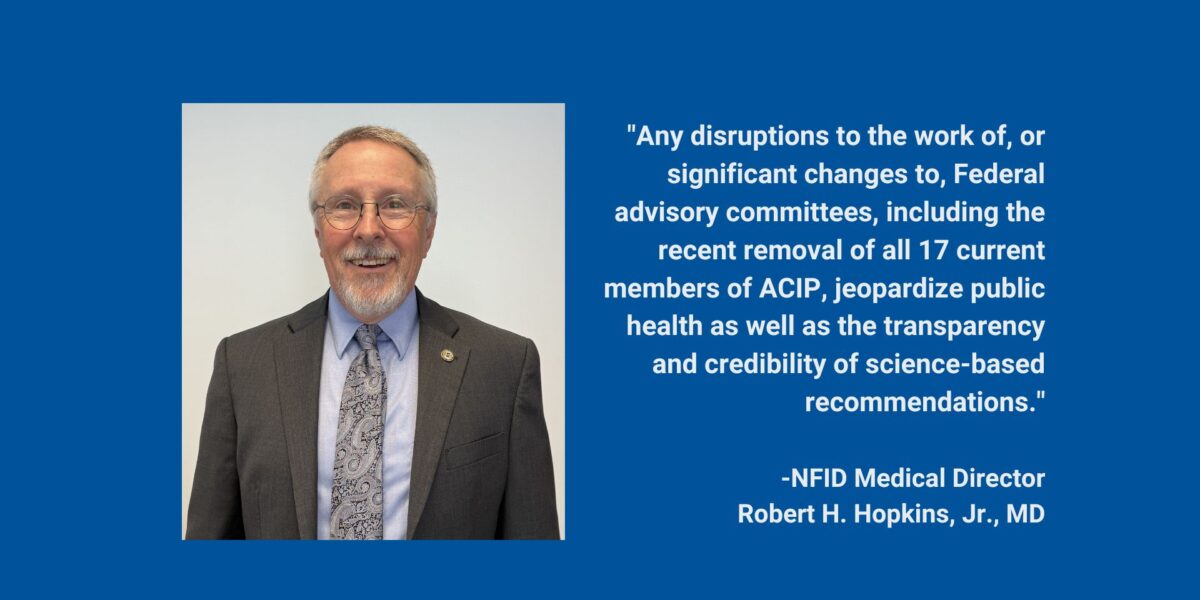
Experts Sound Alarm after ACIP Members Removed
Public health experts and leading healthcare professionals share concerns on the removal of all 17 members of the Advisory Committee on Immunization Practices (ACIP), which advises the Centers for Disease Control and Prevention (CDC) on the use of vaccines in the US
